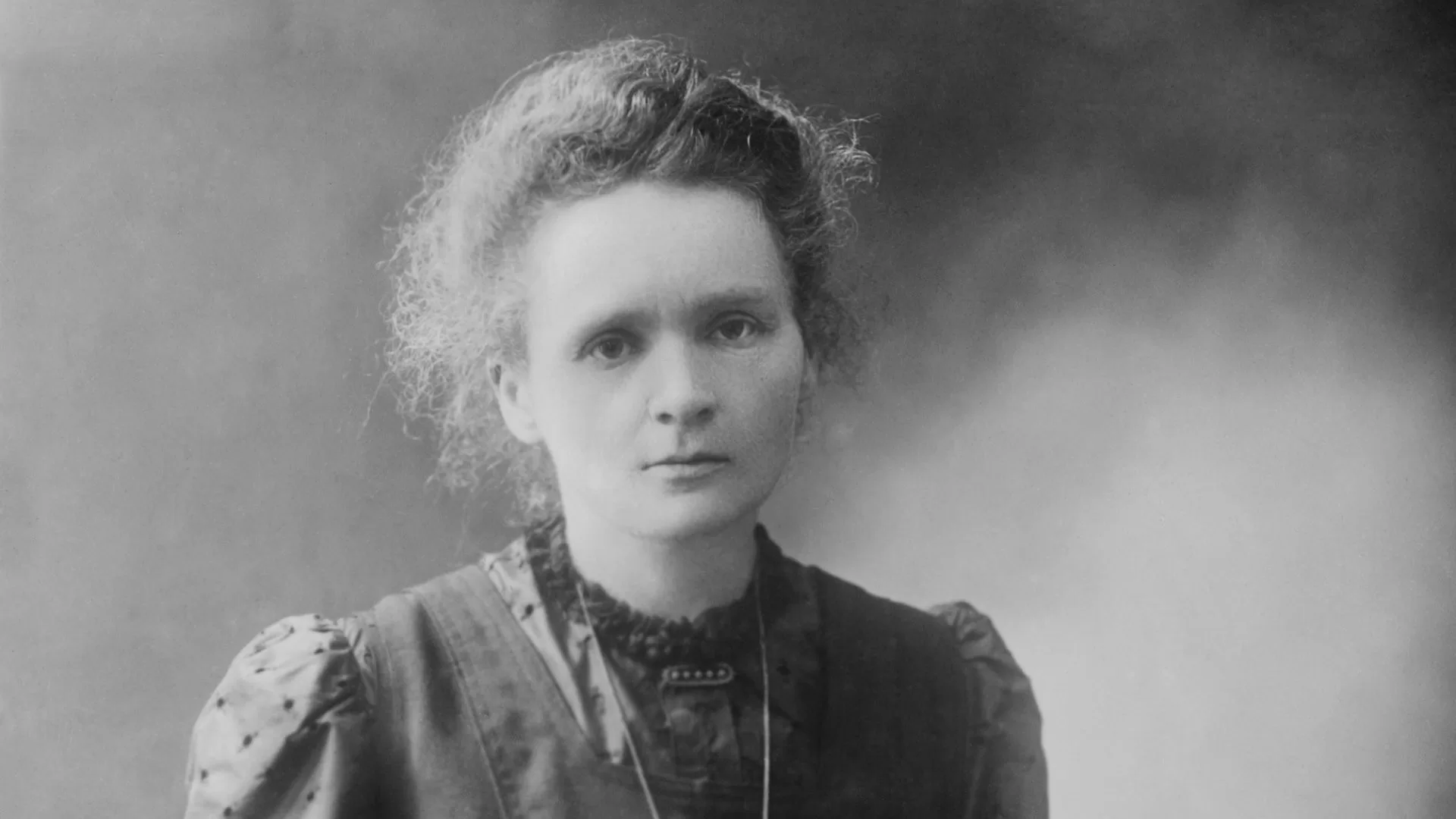In this inspiring episode of English Plus Express with Danny, delve into the life and legacy of Marie Curie, the iconic physicist and chemist. Discover how her groundbreaking research on radioactivity not only revolutionized science but also paved the way for women in STEM. Unearth the struggles and triumphs of Curie’s remarkable journey, from her Nobel Prize achievements to her enduring impact on modern science. Join us to celebrate the extraordinary contributions of Marie Curie and understand why her story remains a beacon of inspiration for aspiring scientists worldwide.
Episode Audio
Interactive Transcript
Marie Curie: The Radiant Force in Science
Welcome to another episode of English Plus Express. I’m your host, Danny, and today we’re stepping into the radiant world of Marie Curie, a woman whose brilliance in the realm of science shines as brightly as the radioactive elements she discovered.
Marie Curie was more than just a scientist; she was a trailblazer, a pioneer in a field dominated by men. Born in Poland in 1867, Curie faced the double challenge of being a woman in science and an immigrant in France. Yet, she didn’t just rise to the occasion; she redefined it.
Curie’s journey is a testament to the power of persistence and passion. She worked tirelessly alongside her husband, Pierre Curie, investigating radioactive substances. Their research was groundbreaking, leading to the discovery of two new elements: polonium and radium. It’s not every day you find elements on the periodic table, right?
But her achievements didn’t stop there. Marie Curie became the first woman to win a Nobel Prize and the only person to win in two different scientific fields: Physics and Chemistry. That’s like winning an Oscar and a Grammy, but for science!
Now, let’s talk impact. Marie Curie’s research on radioactivity laid the foundation for significant medical advances, including in cancer treatment. She also developed mobile radiography units during World War I, providing critical assistance on the battlefield. Talk about taking your work on the road!
Curie’s life was not without hardships. She faced skepticism and discrimination in her career, and her health was impacted by prolonged exposure to radiation. Yet, she never lost her dedication to science. Her resilience and determination serve as a powerful example, especially for women and girls aspiring to break into STEM fields.
Marie Curie’s story is not just about scientific discovery; it’s about breaking barriers and challenging stereotypes. It’s a reminder that passion and perseverance can overcome even the toughest obstacles.
So, as we reflect on the extraordinary life of Marie Curie, let’s carry forward her legacy. Support women in science, encourage young girls to pursue their interests in STEM, and never underestimate the power of curiosity and hard work.
Thank you for tuning in to English Plus Express. If you’ve been inspired by Marie Curie’s story, please follow, share, and consider supporting us on Patreon. Your support helps us bring more stories like hers into the spotlight. Until next time, keep exploring, keep learning, and keep supporting the incredible women who make history every day.
Why Should You Care?
Learning about Marie Curie is crucial because she is a seminal figure in the fields of physics and chemistry. Her story is not just about scientific discovery; it’s a lesson in resilience, breaking stereotypes, and the importance of women in STEM. Understanding her contributions helps appreciate the historical and ongoing challenges faced by women in science and highlights the impact of persistence and dedication in overcoming these obstacles.
Key Takeaways
- Trailblazer in Science: Marie Curie broke gender barriers in a male-dominated field.
- Nobel Prize Achievements: She was the first woman to win a Nobel Prize and the only person to win in two different scientific fields.
- Pioneering Research in Radioactivity: Curie’s work led to the discovery of polonium and radium.
- Impact on Medical Science: Her research contributed significantly to the development of cancer treatments.
- Overcoming Adversity: Despite facing discrimination and health issues, Curie remained dedicated to her work.
Keywords
- Marie Curie: A Polish-born physicist and chemist who conducted pioneering research on radioactivity.
- Physics and Chemistry: Branches of science focused on the study of matter, its motion, energy, and properties.
- Nobel Prize: A set of annual international awards given in several categories for outstanding contributions.
- Radioactivity: The process by which an unstable atomic nucleus loses energy by emitting radiation.
- Polonium and Radium: Two radioactive elements discovered by Marie Curie.
- STEM (Science, Technology, Engineering, and Mathematics): An interdisciplinary approach to learning in these four fields.
- Resilience: The capacity to recover quickly from difficulties; toughness.
- Gender Barriers: Social and cultural norms that inhibit women’s and men’s access to and participation in certain fields or activities.
- Stereotypes: Oversimplified generalizations about a group of people.
- Mobile Radiography Units: Portable x-ray machines used for medical diagnostics, developed by Curie during World War I.
Frequently Asked Questions
What motivated Marie Curie in her research?
Curie was driven by an intense curiosity about the natural world and a passion for uncovering new scientific knowledge.
How did Marie Curie balance her personal and professional life?
She managed a challenging balance, dedicating herself to both her family and her scientific work, often integrating the two.
What challenges did Curie face in her early career?
She faced financial constraints, limited access to higher education and research facilities due to being a woman, and political upheaval in her native Poland.
How did Curie’s discoveries impact other scientific fields?
Her work laid the groundwork for the development of X-rays in surgery, nuclear energy, and further research in physics and chemistry.
What can modern scientists learn from Marie Curie?
Her perseverance, dedication to research, and ethical commitment despite adversity are valuable lessons for scientists today.
Myth Buster
Marie Curie worked alone on her discoveries.
Reality: She collaborated closely with her husband, Pierre Curie, and other scientists.
Curie’s research was immediately celebrated.
Reality: She faced skepticism and discrimination, particularly being a woman in science.
Marie Curie was always recognized for her work.
Reality: She struggled for recognition in some scientific circles and faced media scrutiny.
Her work had no negative consequences.
Reality: Curie’s prolonged exposure to radiation led to health issues.
Curie’s discoveries were limited to physics and chemistry.
Reality: Her work had far-reaching implications, including in medicine and engineering.
Let’s Talk
- How did Marie Curie’s background and experiences shape her approach to science?
- What barriers do women in STEM continue to face today, and how can we address them?
- How can Curie’s story inspire current and future generations of scientists?
Feel free to share your thoughts and join the discussion in the comments section. Let’s celebrate and learn from the incredible journey of Marie Curie!











0 Comments